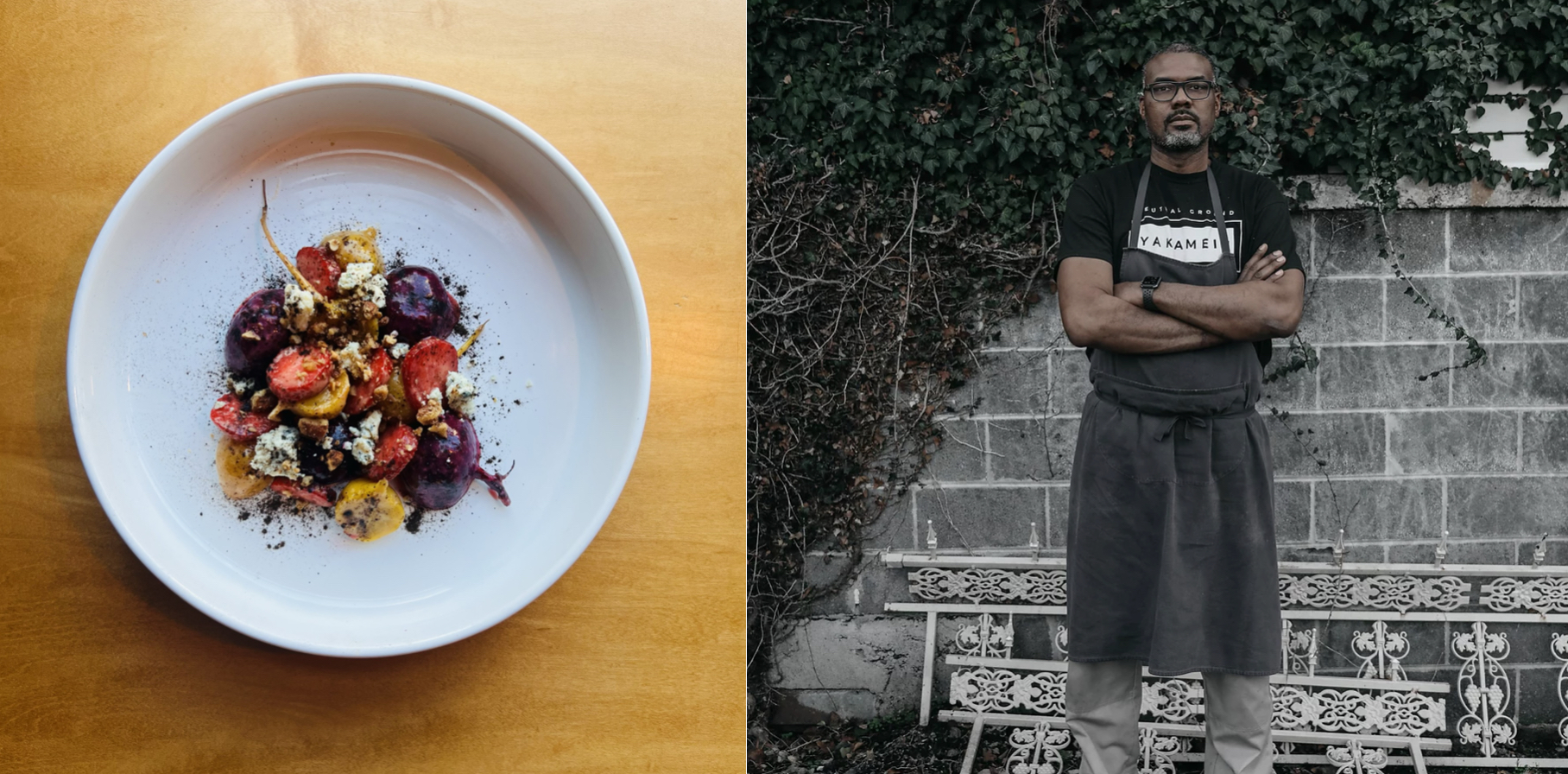If you’re looking for a way to celebrate Juneteenth and your first thought is food, you are not alone. In the South, we mark milestones through food and communion, and much of that tradition comes from African-American communities.
“People tie a lot of who they are to what they eat,” says Chef Kenyatta Ashford of Neutral Ground Chattanooga. “Religious ceremonies, birthdays, bar mitzvahs, quinceañeras — every culture ties significance to their food. The same is true for African Americans. Our history and our stories are deeply connected to our food.”
Chef Ashford has spent a good bit of his career and his life uncovering those stories. He studied at the Culinary Institute of America in New York and cooked everywhere from New Orleans to New Hampshire before returning to Chattanooga to help expand the local food scene. And he was recently awarded a grant by the James Beard Foundation to study cuisines of the African diaspora and West Africa.
WellTuned spoke with Chef Ashford to find out more about how he celebrates Juneteenth.
Why is it important to you personally to recognize and celebrate Juneteenth?
Ashford: A lot of it comes back to not being taught about it in school. Most of us were indoctrinated with the story of ‘America as the land of independence’ and never taught about our history as African Americans. But Juneteenth is truly our Independence Day. And it’s a time for me to reflect on what I’ve learned as an adult about my ancestry and our time here in America.
For people who don’t know, what’s the connection between red food and Juneteenth?
Ashford: Everyone has a different interpretation. For me, red items can symbolize the blood that was shed by slaves who came here. It harkens back to who we are culturally.
For example, I went to Ghana a couple of years ago and learned about bissap, which is a deep-red, hibiscus tea that’s native to Africa. Hibiscus also plays a big role in Jamaican and Latin cultures because Africans had influences in those spaces, too. That’s why you see hibiscus tea in those cultures, typically as ‘agua de Jamaica’.
For me, it’s so satisfying to draw those connections through food. It reminds me of growing up drinking red Kool-Aid. The red sodas, the fruit punch — I like to think we drink those things because of those long-forgotten traditions.
How do you respond to the notion that African-American cuisine is unhealthy?
Ashford: It simply isn’t true.
When I was in Africa watching folks eat, I witnessed locals grilling fish and eating fresh fruits most of the time. Their diets are very vegetable-heavy.
Black food is not any less healthy than any other food; that’s an American thing. It’s important to clarify that it’s our American diet as a whole that’s unhealthy so we don’t keep perpetuating those false stereotypes.
What are your favorite dishes to make or eat for Juneteenth?
Ashford: My favorite is West African Red-Red, which is on the menu at Neutral Ground Chattanooga. It’s a Ghanaian stew we make with Sea Island red peas, sweet plantains, avocado and Carolina Gold coconut rice.
It incorporates red, but it’s also culturally significant because beans and rice are a staple in the diets of Africans who came to the new world. They helped establish cuisines everywhere from New Orleans and Cuba to Puerto Rico and South America. We all eat beans and rice in some form, and it’s really cool to be able to tie my ancestry to that.
I also like to make red-red because our version is vegan. We stew our peas with tomatoes and palm oil, which is to West Africa what olive oil is to Mediterranean people. It’s just a delicious dish.
Make Ashford’s West African Red-Red
3 more Juneteenth favorites from Chef Ashford
1. Roasted beet and strawberry salad
Ashford: This is another great summer item from our menu. We roast local baby beets and make a salad with Red Clay Farm strawberries, Sequatchie Cove Shakerag blue cheese, bacon, tarragon and smoked pecans. It’s beautiful and full of flavor.
Make a beet-and-strawberry salad
2. Red pickles
Ashford: Kool-Aid pickles are a fun, easy way to add brightness to a Juneteenth spread.
This year, I may try using hibiscus to pickle my cucumbers. Did you know hibiscus is actually a cousin to okra? It’s one reason okra’s flowers look like hibiscus blossoms. And both were brought to America by enslaved people.
3. Bissap
Ashford: Hibiscus iced tea is another favorite, and it’s easy to make. Just be careful when you’re making it — hibiscus stains don’t come out easily!
More about Juneteenth and traditional foods from WellTuned
3 ways to celebrate Juneteenth in Tennessee with food, family & history
How to connect traditional foods & healthy eating
Get more information about specific health terms, topics and conditions to better manage your health on bcbst.com. BlueCross BlueShield of Tennessee members can access wellness-related discounts on fitness products, gym memberships, healthy eating and more through Blue365®. BCBST members can also find tools and resources to help improve health and well-being by logging into BlueAccess and going to the Managing Your Health tab.


